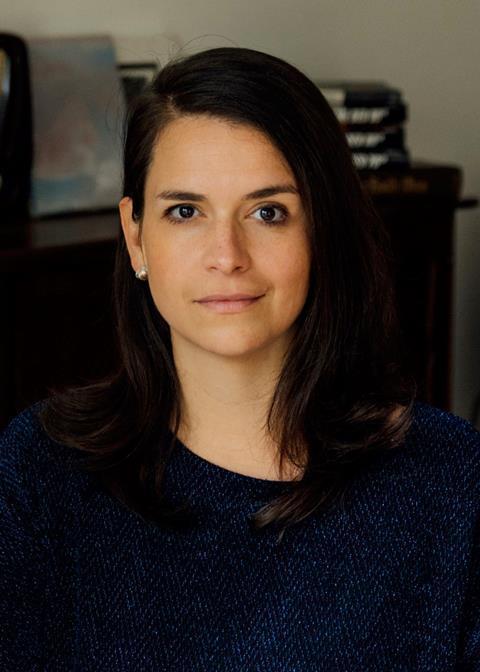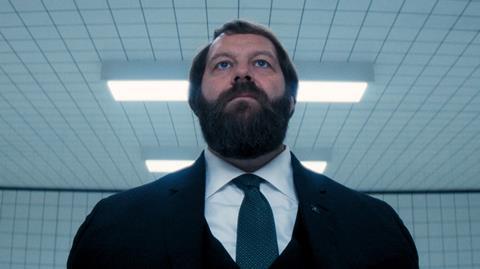Squeezed scripted producers on the continent are evolving to a new reality that has talent and IP at the centre

As creatives and execs gathered in Cologne earlier this month for the Seriencamp conference, the unexploded World War Two bombs that caused half of the city to be shut down seemed strangely apposite for the mood of the industry.
Rocketing production costs, commissions falling through the floor, jobs being lost to AI, and young viewers being lost to TikTok and YouTube give the impression that unrealistic expectations of exponential growth just a few years ago have now been replaced by disproportionate fears of what is to come.
However, the theme of the 11th edition of Seriencamp was not only separating myths from reality but also on finding the windows of opportunity that the disruption in the industry is creating.
Escaping the doom loop
The first step in adjusting to a new reality is to accept it. “Production may have been cut by 40% but quite frankly it needed to be,” said Steve Matthews, head of scripted, creative at Banijay Entertainment during a panel on how to get a greenlight in challenging times.
“Making quality is what’s important now,” he added, a point hard to argue with given that since 2015 (when FX’s chairman Jon Landgraf famously coined the term Peak TV) the amount of original series made in the US alone has doubled.

In today’s leaner times, producers are finding they are doing much of the work they would have previously outsourced whilst also being extremely strategic, and often long term, in their thinking.
“It took around two years of listening and understanding what Netflix were looking for,” explained Danna Stern, exec producer of Bros, Netflix’s first Hebrew-language original, during the same panel. “This period included finding and nurturing exactly the right project and attaching the right talent. We worked very closely with them before anything was signed off,” she said.
Freelance producer Tim Biedert was formerly director of productions & development at Paramount in Germany, Switzerland and Austria, so has personal experience of the acute nature of cuts.
Yet he also questioned the narrative that the industry is on a perpetual doom loop, pointing out that while companies such as Sky Deutschland and Paramount may have cut back on originals, there have been “unexpected German series that have become breakout hits, such as Maxton Hall.”
Prime Video recently announced that Maxton Hall, which has been extended into a third and final season, had become its most watched international series of all time, and Juliana Lima Dehne, the Berlin-based American who co-wrote the series, said its trajectory proved the allure of drama to younger audiences.
“Influencers from all over were invited to the premiere in Berlin and it just snowballed,” said Dehne. “But ultimately, getting people to watch what you make is only half the battle. Social media got the show eyeballs, but it was craft that turned them into super fans.”
Fellow German drama Parallel Me, another younger-skewing original (from Paramount), has also been well received. The Elevator Boys, meanwhile, is Dehne’s next project for Prime Video and follows a fictional group played by the German real-life boy band of the same name who have huge following on social media.
US decline’s upside
Despite this flurry of projects, there is little doubt that European producers - and those in Germany especially - have endured a tough couple of years.
Announcements of new, first-run shows in the country across Q1 2025 were down 36% compared to Q1 2022 (though renewals were up by 7%), according to Ampere Analysis. Despite this, Biedert pointed out that the success of Maxton Hall is reminding Germany what their industry is capable of and piquing interest from abroad.
“There is a very a big window right now for European talents to reach out to America and to the world,” added Elsa Huisman, founder of innovative French management company Studio 112.
“It used to be that French agents and producers would shake hands and that would mean they had a deal, that is no longer possible”
“The US is not an attractive market right now. It’s completely saturated. Overheads and costs are too heavy. Americans can produce or co-produce series or films overseas cheaply, which have the potential to be as successful as productions they make at home,” she said, highlighting a rare tangible benefit to Europe emerging as a result of industry disruption.
Huisman started her career as an entertainment lawyer, who was approached by Netflix when the streamer first entered France more than a decade ago.
She was then recommended to other platforms as they entered the market and, at the same time, talent was approaching her to ensure their legal and financial affairs were in order as they started to work with the new American players.
Talents such as Justine Triet, the writer and director of Anatomy of a Fall, which won her the Oscar for original screenplay, was courted and signed by CAA , as was Sébastien Vaniček, the co-writer and director of a new spin-off of the Evil Dead franchise. In addition to representing both filmmakers in Europe, Studio 112 also structured and now manages their production companies.
Clearly, streaming has completely disrupted the European model of TV and film production over the past decade, with ever-more complex distribution and financing models, and Huisman said the continent’s industry “has professionalised” itself.
“It used to be that French agents and producers would shake hands and that would mean they had a deal, that is no longer possible,” she continued, adding that talent needs to have a tight legal and financial underpinning of their business affairs to leverage their full worth.
“We are in the talent era,” agreed Anxo Rodriguez, chief exec of Espotlight, a production company that aims to promote Spanish content for the international market. “Talent is the most important thing to enable a film or series to be commissioned.”
Rodriguez also has a legal background (and was at one point head of business affairs for the Netflix show La Casa de Papel). He also runs the talent agency Alter Ego Talent House, which provides Espotlight with A-list writers, directors, actors and composers.
The company was born in similar circumstances to Studio 112 following a meeting he had with Amazon, Rodriguez explained.
“They were starting to do Spanish originals but they didn’t really know the market at that point. So I went to meet [former head of Amazon Studios in Europe] Georgia Brown in London with a book and talent attached, and another project. She loved both of them but said she didn’t understand why I wasn’t producing them myself and suggested I go back to Spain and set up my own production studio. Which I did.”
Espotlight has since produced Los Farad for Prime Video, Un Nuevo Amanecer for Atresplayer, and You Would Do It Too, which debuted on Disney+ before being picked up by Apple TV+. It is currently working on Dime Tu Nombre (Prime Video) and Firebreak (Netflix).
Talent-driven production
Both Studio 112 and Espotlight underline the evolution of production over recent years as talent has become the key to greenlights.
The companies, albeit in slightly different ways because of differing national laws, support the back-office administrative, financial and legal aspects around talent and/or IP they own.
Essentially, it means talent with a project can create a co-production around themselves and their show (similar to how a superindie might behave), and thus enable them to better compete against studios. Top-tier talent can also go to the global market and “reach out at a licensing level to get financing from different bits of the world, ” added Huisman.

Talent-driven production is not only apparent in the bigger European countries. Iceland’s Reykjavik Fusion, which was shown at Seriencamp Festival, shares elements of this trend, with Severance star Ólafur Darri Ólafsson not only serving as producer but also playing the main character.
It is also an example of a multi-partner collaboration, with companies including Act 4, Arte, Siminn, Wild Sheep, AMC and Mediapro Studio all involved. Stern, who is on the board of Icelandic production company Act 4, said the company had become “unbelievably successful in a very short time by working strategically, partnering up and collaborating with multiple partners worldwide.”
While talent has arguably never been more important, the necessity of strong IP also makes for a safer bet – and thus a more likely greenlight – for risk-averse commissioners.
It is perhaps for this reason that Banijay-owned Jarowskij / YellowBird is returning to the much-loved Wallander universe. However, something more akin to the 2005 TV series and Krister Henriksson’s manifestation of the character based on Henning Mankell’s original books - rather than experimenting with a completely new take on the character as they did for Netflix’s Young Wallander - is planned, with the addition of contemporary star, Gustaf Skarsgard (the son of the Swedish actor Stellan Skarsgard).
For Dehne, the shifting sands of European production provoke a philosophical response.
“It would be very disconcerting if the industry didn’t follow the pattern of evolution,” she said. Indeed, embracing change may not only placate fears of what is to come but also help to solve some of the industry’s main issues.
“Go where your audience is,” she continue. “If you want to stretch your reach, especially by targeting a younger audience, it would be a missed opportunity not to shoot those moments between characters or the emotional reactions that work very well on social media.
“I know I’ll get a lot of eyerolls for this, but now when I write, those lingering social media worthy reaction shot moments make the page and act as a friendly reminder to grab them during production.”








No comments yet